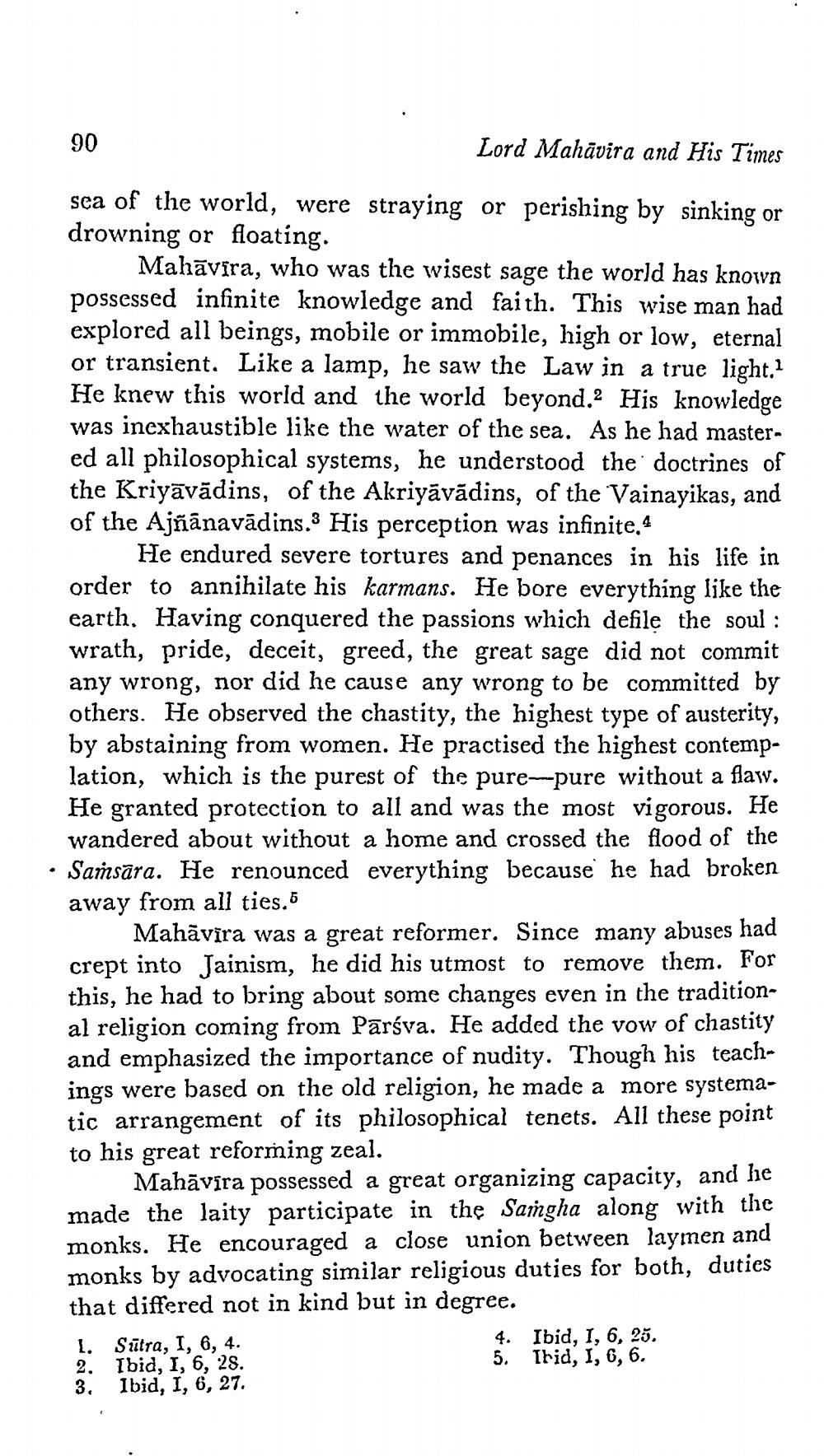________________
90
Lord Mahāvira and His Times
sea of the world, were straying or perishing by sinking or drowning or floating.
Mahāvīra, who was the wisest sage the world has known possessed infinite knowledge and faith. This wise man had explored all beings, mobile or immobile, high or low, eternal or transient. Like a lamp, he saw the Law in a true light. He knew this world and the world beyond.2 His knowledge was inexhaustible like the water of the sea. As he had mastered all philosophical systems, he understood the doctrines of the Kriyāvādins, of the Akriyāvādins, of the Vainayikas, and of the Ajñānavādins. His perception was infinite. 4
He endured severe tortures and penances in his life in order to annihilate his karmans. He bore everything like the earth. Having conquered the passions which defile the soul : wrath, pride, deceit, greed, the great sage did not commit any wrong, nor did he cause any wrong to be committed by others. He observed the chastity, the highest type of austerity, by abstaining from women. He practised the highest contemplation, which is the purest of the pure-pure without a flaw. He granted protection to all and was the most vigorous. He
wandered about without a home and crossed the flood of the • Samsāra. He renounced everything because he had broken away from all ties. 5
Mahāvīra was a great reformer. Since many abuses had crept into Jainism, he did his utmost to remove them. For this, he had to bring about some changes even in the traditional religion coming from Pārsva. He added the vow of chastity and emphasized the importance of nudity. Though his teachings were based on the old religion, he made a more systematic arrangement of its philosophical tenets. All these point to his great reforming zeal.
Mahāvīra possessed a great organizing capacity, and he made the laity participate in the Sangha along with the monks. He encouraged a close union between laymen and monks by advocating similar religious duties for both, duties that differed not in kind but in degree. 1. Sutra, I, 6, 4.
4. Ibid, 1, 6, 25. 2. Ibid, 1, 6, 28.
5. Thid, 1, 6, 6. 3. Ibid, I, 6, 27.




